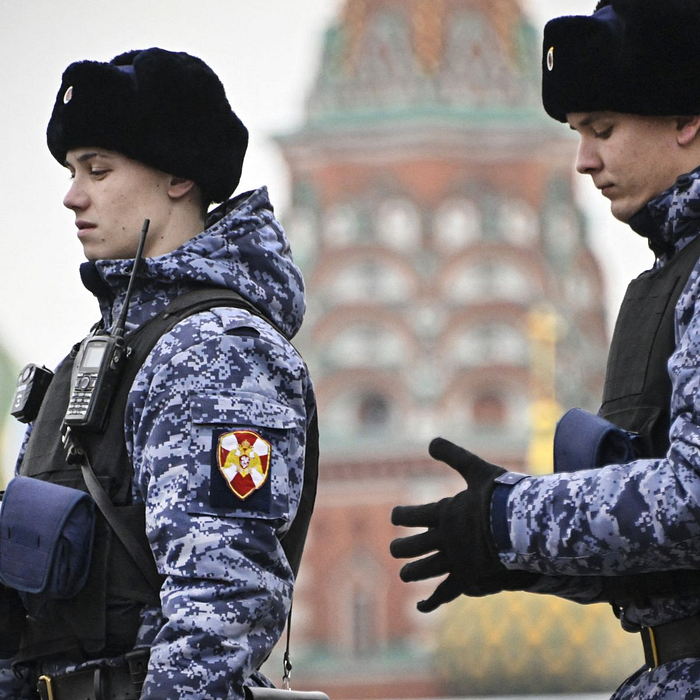Unraveling the Intricacies of Russian Intelligence: Putin, FSB, and a Chronicle of Power Dynamics

Today, the Russian intelligence agencies have been transformed into a highly efficient and powerful force, far superior to their Soviet-era predecessors. A large part of this transformation can be credited to the strong leadership and close association of President Vladimir Putin, who himself was the director of Russia’s leading intelligence agency, the Federal Security Service (FSB). In this article, we will delve into the intricate relationship between Putin and the Russian intelligence agencies, focusing on the FSB’s evolution, and how this connection has significantly shaped the power dynamics within the country.
The Early Days of FSB and Putin’s Role
In the wake of a high-risk conflict that has significantly impacted Russia’s exports and overall economy, Putin, as the commander-in-chief, relies heavily on his advisory group comprising individuals who, like him, began their careers in Russia’s intelligence agencies. The FSB, established in 1994 as a successor to the Soviet-era KGB, plays a crucial role in military counterintelligence, anti-terrorism, and monitoring activities within and outside Russia.
The 1980s were marked by a tumultuous period for the Soviet Union, as the government and the economy were on the verge of collapse. The KGB, despite resource constraints, fared better than most state institutions. However, after an attempted coup against Soviet leader Mikhail Gorbachev in August 1991, involving certain KGB units, the once-feared agency was dismantled. The KGB’s internal security operations were first reconstructed in the form of the Ministry of Security in early 1992, and then, over a year later, as the Federal Counter-Intelligence Service (FSK), both under the President’s jurisdiction.
In 1995, Russian President Boris Yeltsin renamed the FSK as the FSB, granting it new powers, including the right to break into private residences and carry out intelligence operations domestically and abroad, in collaboration with the Russian Foreign Intelligence Service. In the late 90s and early 2000s, the FSB, despite resource constraints, effectively combatted separatist insurgents from Chechnya.
Putin’s Ascendancy: Impacts on FSB
In 1998, Yeltsin appointed Vladimir Putin, a KGB veteran, as the director of the FSB. Putin embarked on a mission to expand the FSB’s authority as President, enabling it to counter foreign intelligence activities, battle organized crime, and suppress Chechen rebels. While counterintelligence became the FSB’s forte, it was widely criticized for its perceived failure to distance itself from its KGB roots, particularly in its methods of recruiting operatives and creating cases against suspected dissidents.
During his tenure, Putin empowered the FSB to delve into overseas intelligence and covert operations, thus allowing it to become a key player in contemporary events. This was not because the FSB boasted superior technical skills than other Russian agencies but because it was not constrained by the same limitations as the rest of Russia’s security services.
The Strengthening of FSB under Putin
Putin, as a staunch supporter of the FSB, has continued to protect its interests, undermine his opponents, watch over his subordinates, and clamp down on any outbursts of popular unrest. In return, Putin has shielded, empowered, and elevated the agency, ignoring corruption within its ranks, allowing it to outperform rival agencies like the Federal Anti-Narcotic Service, and promoting its officers to key positions, including regional governorships and the head of his Security Council.
The FSB’s growing influence is apparent in its rivalry with other Russian intelligence agencies. In the wake of the GRU’s failures in
Russia’s 2008 war with Georgia, and what Putin perceived as SVR’s overly cautious approach to information acquisition, the FSB stepped up to fill the void. It began briefing Putin on foreign policy and lobbying aggressively for the funding and mandate to mount political operations.
FSB’s Risk-Taking Approach and New Ideology
The FSB’s most notable attribute, much admired by Putin, is its readiness to take risks. In many ways, the FSB is a mirror image of Putin himself, making the most of a weak hand by being more unpredictable and combative than any of his counterparts. The FSB, by hacking into Western politics, has been successful in sowing discord, but this has also sparked a backlash in the West against Russian meddling and disinformation.
The new ideology emerging within the FSB can be described as the formation of a “new nobility.” The FSB began to play a larger role in Russian banking and economic circles, policing oligarchs, and assisting Putin in the organization of new industrialization. A significant number of FSB officials have been assigned to various positions in state enterprises, helping Putin maintain control over these industries.
Putin’s Closest Inner Circle
Putin’s closest inner circle includes Defense Minister Sergey Shoigu, National Security Council Secretary Nikolai Patrushev, and Federal Security Service (FSB) Chief Alexander Bortnikov. Bortnikov, as the long-time chief of Russia’s all-powerful FSB, is undeniably Putin’s most dependable and trustworthy ally. Under Bortnikov’s leadership, the FSB has extended its operations both domestically and internationally.
The FSB and Information Warfare
The FSB is a key component of Russia’s new information warfare doctrine, which involves using social media to influence public opinion in other countries. Officials in the United States believe that Russian government agencies were involved in hacking and disinformation campaigns aimed at U.S. voters during the 2016 presidential election. To monitor internet traffic, the FSB has significant legal capabilities and can snoop on emails and phone calls using a device called SORM, while VPNs and other anonymization technologies also fall within its purview.
Conclusion
Putin’s relationship with the FSB has led to the agency gaining significant power, status, and operational authority, making it a closed institution impervious to both external scrutiny and pressure. The journey of the FSB, under the leadership and influence of Putin, reflects a deep-seated shift in Russia’s intelligence landscape, where power, loyalty, and ambition have become the defining traits. The transformation of the FSB, from a mere successor of the KGB to a central pillar of Putin’s regime, paints a vivid picture of the broader political dynamics at play in contemporary Russia.
